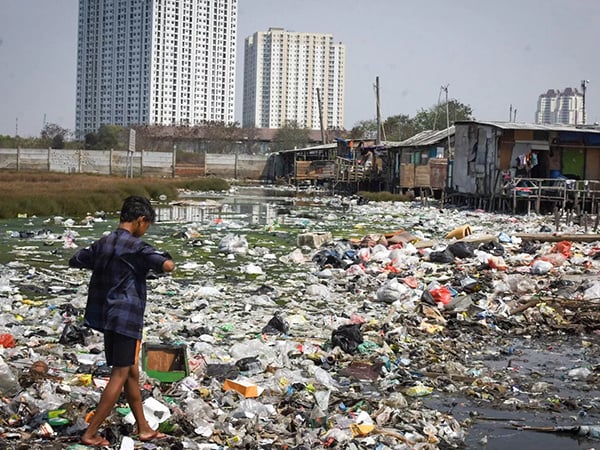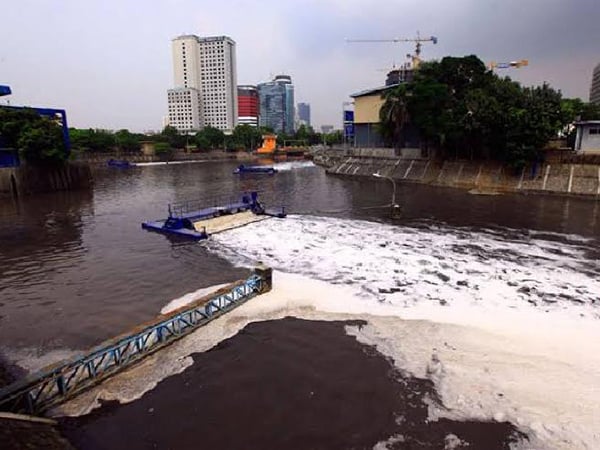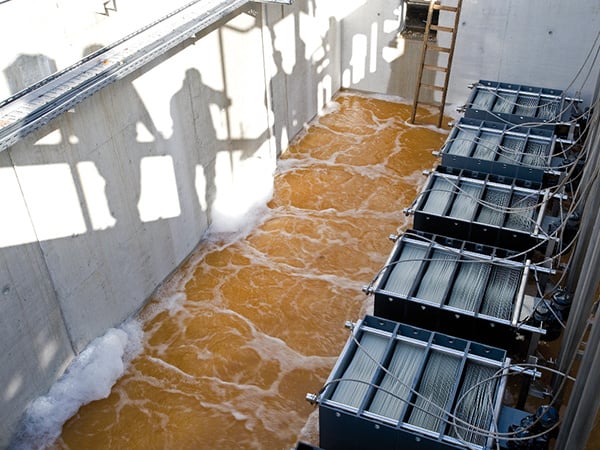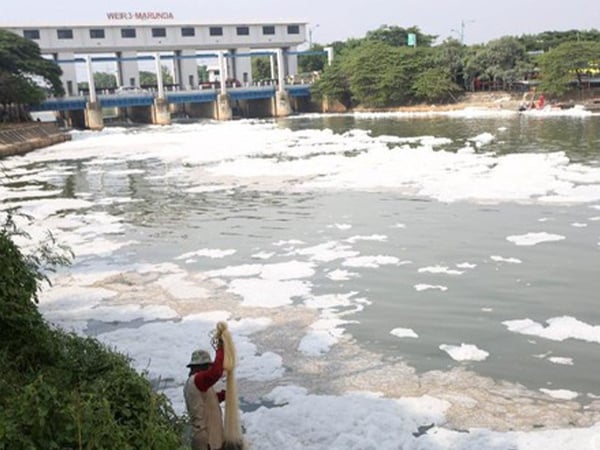Jakarta, as the capital city of Indonesia, faces serious environmental challenges, one of which is wastewater. Jakarta's wastewater problem not only impacts the sustainability of the environment but also the health and economy of the community. Untreated sewage is a major cause of pollution in the rivers and canals that run through the city, degrading quality of life and threatening local biodiversity.
In addition, rapid population growth and urban expansion without adequate management further exacerbate this condition. This article will delve deeper into the causes, impacts, and solutions of Jakarta's growing wastewater problem, inviting readers to understand the complexity of the issue and the importance of collective action.

Causes of Jakarta's Wastewater Problem
Jakarta faces major challenges in effective wastewater management, caused by a variety of interrelated factors. From industrial contributions to inadequate infrastructure, each aspect has a significant impact on the current situation. Inefficient policies and practices in managing industrial and domestic waste have led to increased contamination of existing water sources. The following are some of the main causes of Jakarta's wastewater problems that require serious attention and swift action.
- Industry Contribution
Industry in Jakarta is one of the biggest contributors to the wastewater problem. Many factories and industries discharge their wastewater into the water system without adequate treatment. This not only pollutes water sources but also damages local ecosystems. This pollution often contains harmful chemicals that can result in long-term damage to aquatic life and drinking water quality.
- Housing Impact
High population density in residential areas also contributes to this problem. Domestic waste from households is often poorly managed, resulting in the flow of sewage into rivers and other waterways without prior treatment. This inadequate disposal system is often a major cause of disease spread and urban environmental degradation.
- Inadequate Infrastructure
One of the biggest root causes of the problem is the inadequate waste management infrastructure. Many areas in Jakarta lack effective wastewater treatment facilities, so waste is not handled properly before being discharged into the environment. These infrastructure weaknesses exacerbate pollution conditions and limit the city's ability to develop a more sustainable system.

Impact of Waste Water in Jakarta
Water pollution in Jakarta is not only an environmental issue but also touches on broader health and economic aspects, impacting the daily lives of its citizens. The direct consequences of this poorly managed wastewater include various negative aspects, ranging from the degradation of local ecosystems to adverse economic impacts. The link between water quality and community well-being makes addressing this issue a top priority. Here are some of the major impacts caused by Jakarta's wastewater problem:
- Environmental Consequences
Water pollution in Jakarta causes severe environmental damage, including fish kills and destruction of freshwater habitats. These damaged ecosystems reduce biodiversity and disrupt the balance of nature. This pollution adversely affects aquatic flora and fauna, reduces the ability of rivers and lakes to support aquatic life, and threatens the sustainability of water resources for future generations.
- Health Concerns
Poorly treated wastewater can cause a range of diseases, such as diarrhea and cholera, which often affect local communities. These health risks increase especially during the rainy season, when wastewater mixes more easily with clean water sources. This pollution not only affects health directly through the consumption of contaminated water, but also through the food chain, where contaminants enter the body through the consumption of fish and other aquatic products exposed to pollutants.
- Economic Effects
Wastewater problems also have economic impacts, from reduced productivity due to illness to high costs in environmental management and cleanup. Local businesses and tourism are also negatively affected, reducing the city's economic potential. These sectors suffer losses due to the reduced attractiveness of the environment, as well as increased health and waste management costs that must be borne by the government and the private sector.

Solutions to Jakarta'sWastewater Problem
Addressing Jakarta's wastewater problem requires a comprehensive approach, involving cooperation between the government, the private sector, and the community. By utilizing government initiatives, technological innovations, and active community participation, we can seek sustainable solutions to improve the current situation. These measures that have been and will be taken aim to address the problem from upstream to downstream, ensuring more effective and environmentally friendly wastewater management. Here are some of the key solutions that are being implemented or proposed to address Jakarta's wastewater problems:
- Government Initiatives
The government has initiated several projects to improve waste management infrastructure. These include the construction of new water treatment facilities and the renovation of existing waterway systems to reduce pollution. These programs are aimed at improving the city's capacity to manage sewage in a safer and more efficient manner, ensuring that sewage is treated before it reaches natural water bodies.
- Technology Innovation
The use of the latest technologies in sewage treatment can provide more efficient and effective solutions. For example, biofilter technology and advanced treatment can reduce the impact of sewage on the environment. Innovations such as advanced filtration systems, biological reactors, and chemical separation technologies aim to minimize the release of contaminants into the environment, while recovering resources from treated effluents.
- Community Involvement
Public awareness and participation are essential in addressing wastewater issues. Education on the importance of effluent treatment and the sustainable use of water resources must be increased so that this problem can be addressed at the root. Educational programs can include campaigns on efficient water use, the importance of maintaining water quality, and the benefits of recycling and reusing water.
Through a combination of these initiatives, Jakarta can expect a significant reduction in the water waste problem it currently faces. This multi-faceted approach not only improves water quality but also supports sustainable development and public health.

Jakarta's wastewater problem is a challenge that requires serious attention from all parties. Ineffective wastewater management not only damages the environment but also poses serious risks to public health and hinders sustainable economic growth. With collaboration between government, industry and communities, we can effectively address this issue. Government initiatives that support the development of better sewage treatment infrastructure, the use of advanced technologies, and increased public awareness and participation are key to a more sustainable and healthy future for the capital city.
Let's take concrete steps to reduce wastewater and protect our city. By committing to innovative and sustainable solutions, we can ensure that Jakarta is not only a livable city but also an example for other cities in effectively managing water resources. Awareness of the impacts and solutions of wastewater must continue to be raised and integrated in all aspects of urban life and development.
